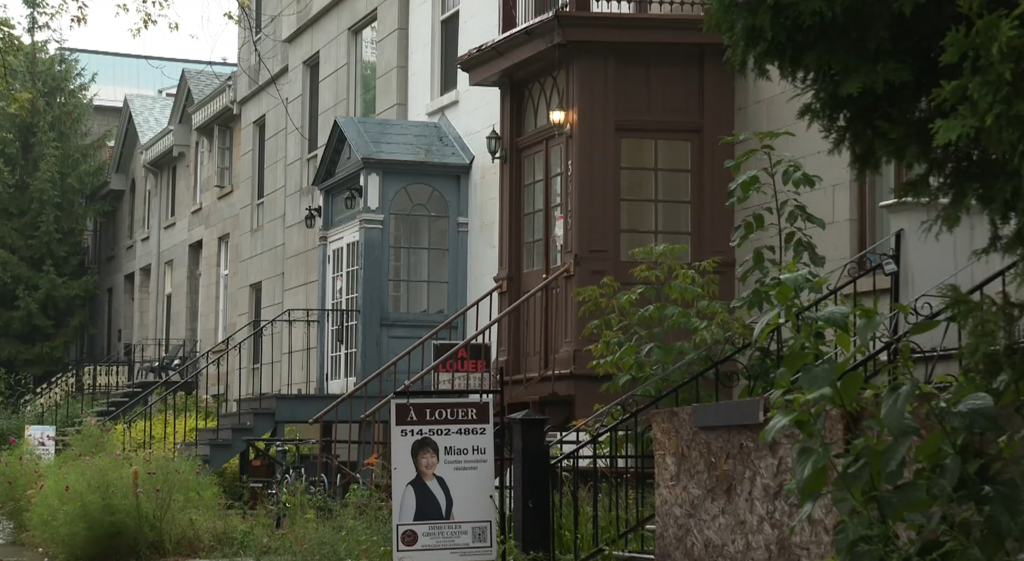Montreal bylaw aimed at increasing social and affordable housing a failure, says official opposition

Posted August 21, 2023 12:37 pm.
Last Updated August 21, 2023 6:26 pm.
A 2021 Montreal bylaw aimed at motivating developers to include social and family housing for their new development projects shows no signs of working, says Ensemble Montréal, the city’s official opposition.
The Bylaw for a Diverse Metropolis forces developers to include social, family and affordable housing units to any new projects larger than 4,843 square feet. If they fail to do so, they must pay a fine or hand over land or units in the buildings for the city to then turn into social housing.
“Back in 2021, Project Montreal has promised to build over 10 years, 60,000 affordable housing in Montreal,” said Julien Hénault-Ratelle official opposition critic for development economy, urban planning and housing, and a city councillor for Mercier–Hochelaga-Maisonneuve. “And one would notice, the opposition, over the past two years, since the implementation of this bylaw, there’s been no affordable housing built in Montreal and only seven per cent for family housing,” said Hénault-Ratelle.
Open data available on the Ville de Montréal portal and released by Ensemble Montréal suggests that all real estate developers who entered into an agreement under the bylaw preferred to pay the financial contribution rather than fulfilling their obligations in terms of affordable housing.
The money from the fees paid by developers goes towards building affordable or social housing, but the amount collected so far –$24.5 million– simply isn’t enough to make much of a dent at all.
Results are ‘catastrophic’
Faced with the absence of tangible results, Ensemble Montréal is planning to file a motion at the next municipal council to press the Plante administration to be accountable for the results, as it promised to do so in 2019.
Hénault-Ratelle calls the results “catastrophic” in the midst of the city’s housing crisis.
“The Plante administration praises this bylaw, but does it really work?” says Hénault-Ratelle. “With the data that we have, we are really skeptical. If the mayor can’t get the results she promised, she must be transparent with Montreal citizens. We have to know now if amendments to the regulation are in order to curb the housing affordability crisis.”
The city of Montreal had promised in 2021 to publish the two-year results of the bylaw by early 2023, but hasn’t done so yet.
While Montreal housing groups say far stricter rules are required to force developers to build social housing or cede property, they also say the real problem is that social housing programs are underfunded by the provincial government.
During a press conference on Monday, Montreal Mayor Valérie Plante put the blame on the province. “It’s not the bylaw, that is a planning tool, that is the problem and doesn’t work, it is the fact that the government of Quebec have left of their responsibility to finance social housing,” said Plante.
Community organizer of Front d’action populaire en réaménagement urbain (FRAPRU) Catherine Lussier says developers are most likely taking advantage of the bylaw’s loophole.
“They can still make a lot of profit which you can not do with social housing,” said Lussier. “We’re selling this city to private developers.”








